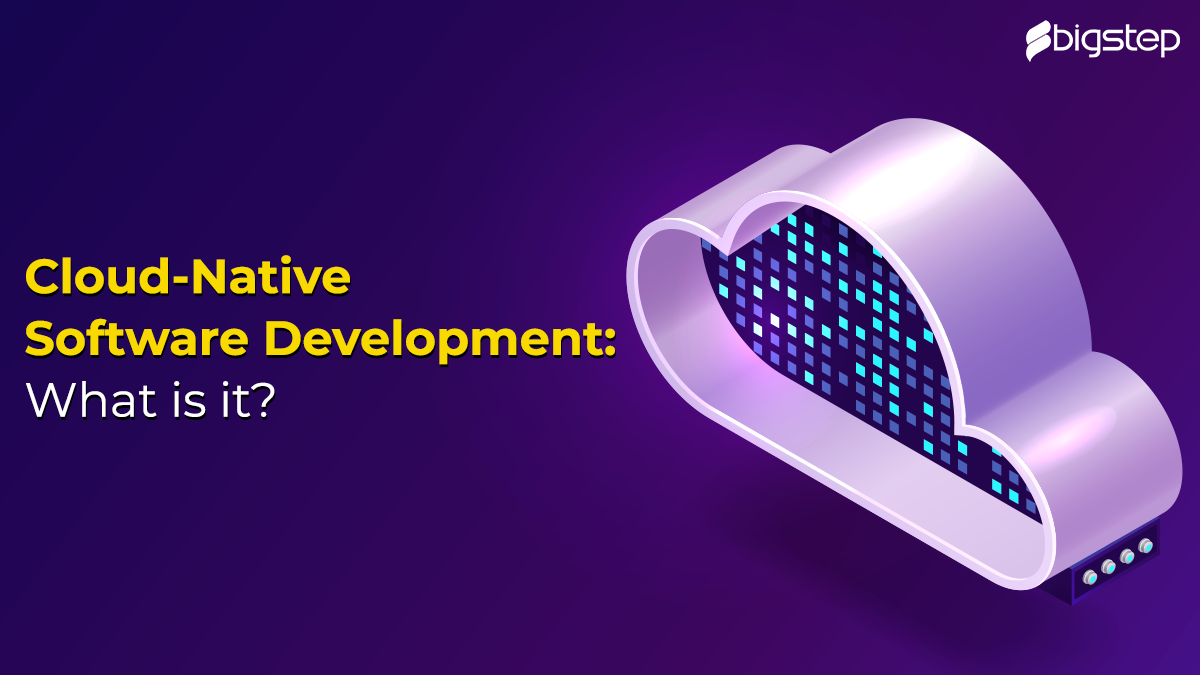Cloud-Native Software Development: What is it?

Cloud-Native software development is different from the traditional model of development. It focuses on creating applications that make the best use of cloud capabilities. Developing software with cloud-native becomes smooth with the scalable, flexible, distributed platform and a huge amount of on-demand tools and services. It includes DevOps, agile method, microservices, cloud platforms, containers like @Kubernetes and @Docker, and continuous delivery.
How Cloud-Native software development different from the traditional approach?
1. Languages
Cloud-native apps are written in a web-centric language, like HTML, CSS, Java, JavaScript, .Net, Go, Node.js, PHP, Python, and Ruby while the traditional on-premise apps are written in traditional languages like C/C++, C#, etc.
2. Elasticity
During a use spike in the cloud-native apps, the client can set to use extra compute resources until the spike subsides and then turn off those resources. But the traditional apps cannot scale.
3. Multitenancy
A cloud-based app works in a virtualized environment and shares resources with other apps but the on-site applications either work badly or do not work at all in a virtual environment.
4. Connected resources
In traditional or on-premise apps, connected resources such as networks, security, permissions, and storage are usually in hard-code. Network and storage are completely different in the cloud.
5. Downtime
If a server goes down in an on-premise app the app goes down with it. But in cloud-native, if a cloud provider suffers an outage, another region can pick up the slack.
6. Automation
On-premises apps require manual management while much of the cloud is automated, and that includes app management.
7. Modular design
With many functions broken down into microservices, cloud-native apps are much more modular. Because of this, it can be shut off when not needed and the updates can be rolled out to that one module, rather than the whole app.
What impact does Cloud-Native have?
The cloud turns the operations team into an API which speeds up the development. Deploying to production in a code-defined world becomes extremely easy. Deployments get reduced to nothing more than an API call. Deployments used to be a lot of effort but with cloud-native developers can easily deploy small code at a faster pace, and often with no fear.
Why Cloud-Native software development matter?
1. Easily respond to change
Automated deployments are the best thing in cloud-native. This means the deployment of new features to production at the push of a button.
2. Embrace an experimental approach
In the cloud-native, if the app requires a new update or a new feature developers can immediately build an MVP and roll-out the new feature without worrying about the hardware.
3. Use principles of agile
Cloud-native’s principles make use of agile ways to manage the main obstacle of infrastructure in application development.
4. Swift development with microservices architecture
On the cloud, apps built as a collection of services are hosted as individual entities. This helps the development team to make changes to individual modules at will. Microservices architecture helps speed up the scale of the development of an app. Unlike on-premise architectures, these are low-cost and take significantly less amount of effort for changes. Many teams can work on many modules at once without disturbing each other.
5. Go from idea to application in the fastest possible time
With the cloud-based approach developers respond to change, experiment, be super agile, and benefit from the latest technologies. Eventually, get from the idea to the app in the fastest possible time.
Conclusion
The ideas and concepts of Cloud-Native computing introduced a new way to implement complex, scalable systems. Even if you’re not hosting your application on a cloud platform, these new ideas will influence how you develop applications in the future. Whether a fad or not, cloud native offers flexible solutions for software products depending on the project requirements. In fact, microservices are used by many companies to implement their software products.
When you employ cloud services, having a development partner like BigStep Technologies will help you get the best results. We have a team of cloud technology experts capable of developing, managing, monitoring and enhancing your software’s performance throughout the software development lifecycle. Get in touch with our experts today!
karishma Verma
Content writer with a passion to write for a variety of niches to broaden my horizon as a professional writer.
No Comments
Sorry, the comment form is closed at this time.